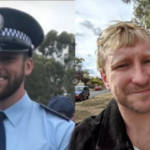Should Police Stations Be Required to Record Telephone Calls with Members of the Public?

The New South Wales Government has been forced to concede that the prosecution of a man which was based on fabricated evidence by a police officer was malicious, which means state taxpayers will once again have to pay for police misconduct.
The concession was made after a police officer’s appeal against a conviction for fabricating evidence against a man was dismissed.
The officer claimed the man had made threats to kill police during a call to the police station, which led to the man’s arrest, refusal of bail and remand in prison for three weeks.
However, the man recorded the conversation and it became clear the officer had fabricated the allegations.
The case has led to calls for police stations to be required to record telephone conversations with members of the public, in order to stop police from making false claims.
What is malicious prosecution?
Malicious prosecution is a common law tort which creates liability for misconduct by prosecuting bodies such as police and the Office of the Director of Public Prosecutions (ODPP).
The tort is based on the principle, now embodied in legislation such as the Law Enforcement (Powers and Responsibilities) Act of 2002 as well as the Criminal Procedure Act of 1986 that law enforcement agents must have sufficient grounds to take away a person’s liberty, for example by way of arrest, or seek to do so, such as by way of a criminal prosecution.
Three elements will normally need to established on the balance of probabilities (in other words, more probable than not) for a malicious prosecution to be made out in the civil law:
- Criminal proceedings were initiated or maintained by the defendant against the plaintiff,
- The proceedings were discontinued,
- The defendant initiated or continued the criminal proceedings without reasonable and probable cause, and
- The defendant acted maliciously; in other words, ‘acting for purposes other than a proper invocation of the criminal law’.
The plaintiff will be entitled to damages in the form of monetary compensation if each of these elements are established.
The prosecution of Luke Brett Moore
The case at hand involves a man named Luke Brett Moore who spent several weeks in prison based on fabricated evidence supplied by former NSW police officer Daniel Keneally, who is the son of former New South Wales Premier Kristina Keneally’s.
Mr Moore was imprisoned for three weeks in February 2021 after Daniel Keneally gave a false statement claiming that, during a telephone conversation while the latter was at the police station, Mr Moore had made a threat to kill a police officer.
Unbeknownst to the officer, Mr Moore recorded the conversation and it transpired the claim was entirely fabricated.
Mr Moore, the founder of ISUEPOLICE.com, was later released on bail and the charges against dropped.
He then sued the state of New South Wales for malicious prosecution, based on the conduct of the officer.
The state taxpayer – rather than Mr Keneally – will have to pay the legal costs and damages resulting from the proceedings, as the state of New South Wales is considered to be vicariously liable for the conduct of police officers.
NSW Police Officer fabricated evidence
Daniel Keneally was charged with the offence of making a false accusation in October 2022 after the Law Enforcement Conduct Commission conducted an investigation of the findings of an internal police probe which had initially cleared him of wrongdoing.
The offence carries a maximum penalty of 7 years in prison but, despite the gross breach of trust and having effectively put an innocent man in prison, was given a 15-month intensive correction order earlier this year. He did not and will not spend any time in prison, and remained on the police force throughout the course of the proceedings.
He resigned from the force in June of this year, after losing his appeal against the conviction.
As a result of the failed appeal, the New South Wales Government has had to accept Mr Moore was maliciously prosecuted.
Internal investigations are where police investigate themselves, and it has been long been acknowledged that such a system facilitates ‘cover ups’ within the police force. If the police conduct oversight body, the LECC, had not conducted its own investigation, the results of the internal investigation would stand, in their own right, as conclusive.
The NSW Government having now conceded malicious prosecution paves the way for Mr Moore’s civil suit to return to court – a date has been set down for February next year.
Ultimately, if the court determines in Mr Moore’s favor, then the taxpayers will fund any related compensation payouts.
Mr Moore, who has a law degree, founded ISUEPOLICE.com in 2021. It is a service set up to help victims of alleged police abuse, brutality or misuse of powers or malicious prosecution, to take matters to court, to seek compensation.
Police behaving badly: the enormous cost to taxpayers
Over the past decade, police powers have been steadily expanded, and while there have been many stories in the media and plenty of videos that have hit social media, reliable statistics with regard to police misusing their powers and causing harm, are difficult to come by.
According to figures published in 2020, New South Wales police paid out more than $100m in relation to legal settlements in the previous four years. This, of course, was pre-Covid. The pandemic certainly, anecdotally, showed a sharp rise in police over-reach as they enforced “emergency health laws”.
The problem is that the confidentiality claims in civil suits often prevent victims from speaking out, and skew statistics, because cases can be settled before they reach the courts.
There is not one single reliable figure – only a figure that has to be compiled from various sources and which may not provide the real cost to taxpayers, who most definitely have a right to know.







